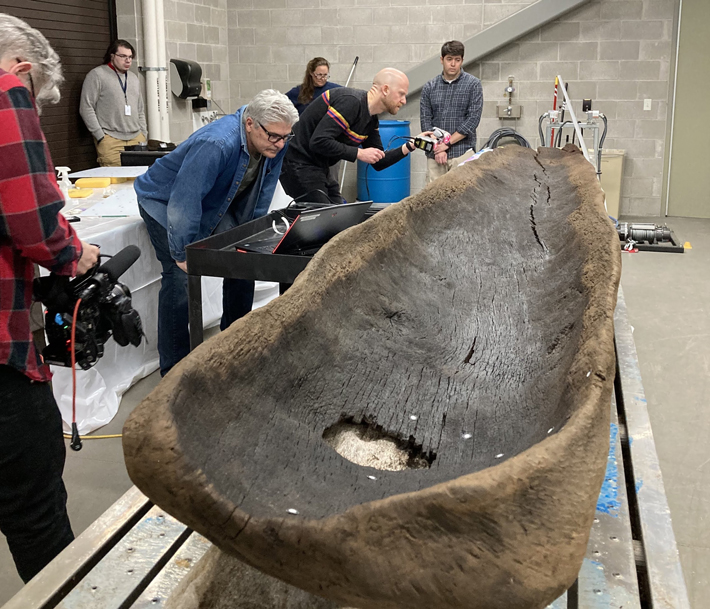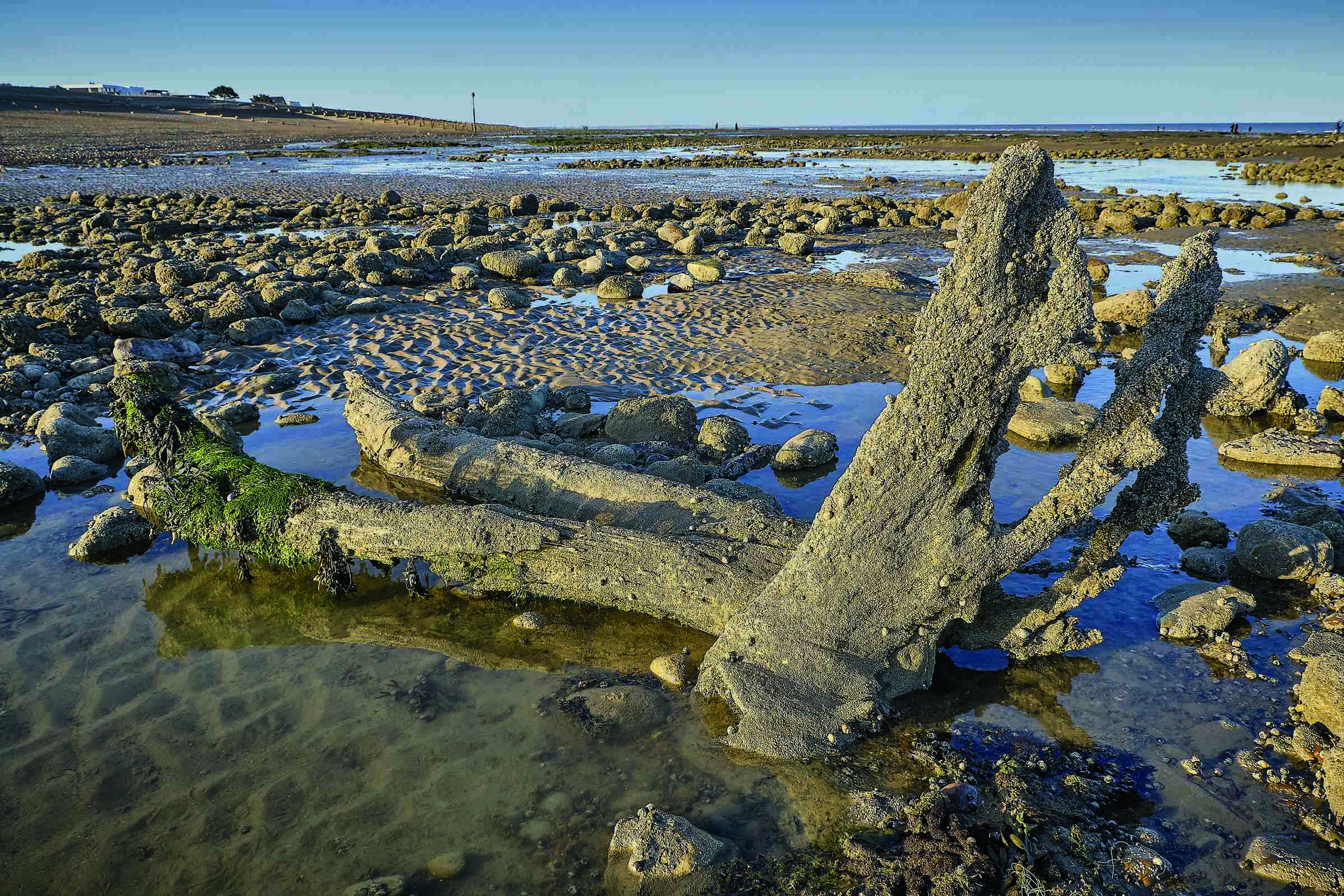
MADISON, WISCONSIN—The Journal Times reports that a dugout canoe discovered last fall in Wisconsin’s Lake Mendota has been scanned with high-tech tools to aid in further study. Radiocarbon dating of a sample of wood from the canoe revealed that it is 1,200 years old, and was likely built by southern Wisconsin’s Effigy Mound builders, the ancestors of today’s Ho-Chunk Nation. Seven net sinkers recovered from the vessel indicate it was used for net fishing, a technique previously thought to have been limited to the Great Lakes. “Now we have a really good three-dimensional scan of this object,” said Lennon Rodgers of the Grainger Engineering Design and Innovation Laboratory at the University of Wisconsin. “You can see all the way down to the tool marks.” The scans may also be used to create a full-size replica of the vessel for use at the Wisconsin History Center, added state archaeologist James Skibo. To read about the canoe's initial discovery, go to "Gone Fishing."










